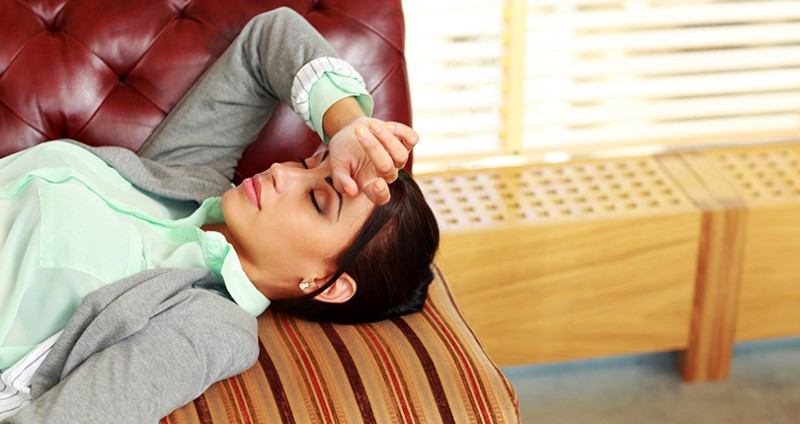Anyone who's ever suffered from hemorrhoids shouldn't be among those joking about them, because in truth they are no laughing matter. Hemorrhoids can be a very annoying condition, even an aggravating one, and they often are accompanied by enough pain to make even sitting a painful chore. The first signs of hemorrhoids can even be a scary proposition, when you – and it's hard to put this delicately – have a bowel movement and get up from your toilet seat, only to look behind you and see a bright red blood in the water – yes, it's blood. You feel fine – at least you did a minute or so earlier, and now you are wondering what could possibly be wrong with you. Quite likely, it's hemorrhoids.
What Are Hemorrhoids?
Hemorrhoids, also referred to as ‘piles,' are swollen veins in your anus and lower rectum, per mayoclinic.org. They might be caused by your straining while having a bowel movement or from added pressure on the veins that can occur during pregnancy. Hemorrhoids occur also because of straining when lifting something heavy and standing or sitting for long stretches of times, per webmd.com, as can complications linked to chronic constipation and a family history of hemorrhoids, per healthline.com. Or it could be a lack of fiber in your diet or not regularly drinking enough water. Consistent anal sexual activity and diarrhea can also increase your risk of developing hemorrhoids. There are two main types of hemorrhoids – internal hemorrhoids, which can be found inside the rectum, and external hemorrhoids that might develop beneath the skin in the area of the anus. Hemorrhoids are fairly common; about three in four adults experience them at least once in their lifetime, with about 50 percent of folks experiencing hemorrhoid symptoms by the age of 50, per healthline.com. Hemorrhoids are not always accompanied by noticeable symptoms, however, although when they do pop up they can include painless bleeding during bowel movements, painful bowel movements, fecal leakage, itching, irritation, and/or swelling in proximity to your anus, general pain or discomfort, or a lump close to your anus that could be sensitive or painful. Often, bleeding will be the only sign that you have them, per webmd.com. They will usually go away on their own after a few weeks, although in some cases a blood clot can form from within the anal canal in a prolapsed hemorrhoid or a thrombosed hemorrhoid. Some symptoms of this are that it can turn purple or blue, be painful, and be accompanied by itching and bleeding.Natural Remedies for Hemorrhoids, Treatment and Prevention
As often as they are painful or at least uncomfortable, they aren't life-threatening and typically go away on their own without need for medical treatment. Still, if you are experiencing any of the symptoms mentioned earlier, you are well advised to see your physician for an examination and diagnosis, if for nothing else than your peace of mind. Following are some natural remedies or measures, supplements, and vitamins you can work into your daily routine to help ward off them– or treat them once you have them:- Fiber supplements. These can include fiber tablets, glucomannan, white chia seed, and FenuLife.
- Prostamin. Its main function is to support healthy prostate function.
- Rutin. This supplement's apparent benefits include enhancing the strength and flexibility of capillaries, which makes it useful for treating strained blood vessels.
- Vitamin C. It can help maintain the integrity of your veins, which have a central role in hemorrhoids, per pacificcollege.edu. Because it's a water-soluble unabsorbed vitamin C can attract water into your intestines and act as a stool softener. Be careful though as too much vitamin C can cause other issues.
- Topical treatments. Over-the-counter ointments and creams, such as hydrocortisone, hemorrhoid cream, aloe vera, or witch hazel applied to the skin around the anus and hemorrhoid tissue, is helpful. A sitz bath, a few inches of warm water with some witch hazel, epsom salts, or another sitz related product is a great way to clean the rectum and anus, reduce swelling, and provide relief.
- Drink plenty of water. Staying properly hydrated can help keep your stools from hardening, which is where you can experience straining while having bowel movements and possibly prevent hemorrhoids from occurring.
- Eat the right foods. Aim for those that contain lots of fiber, such as whole wheat, brown rice, oatmeal, carrots, pears, buckwheat, and bran, per healthline.com.
- Get up from your desk. It's recommended that you at least stand from a sitting position every 15 minutes to help avoid the constant pressure on your bottom. Take this quick break to stretch or grab a drink of water.

